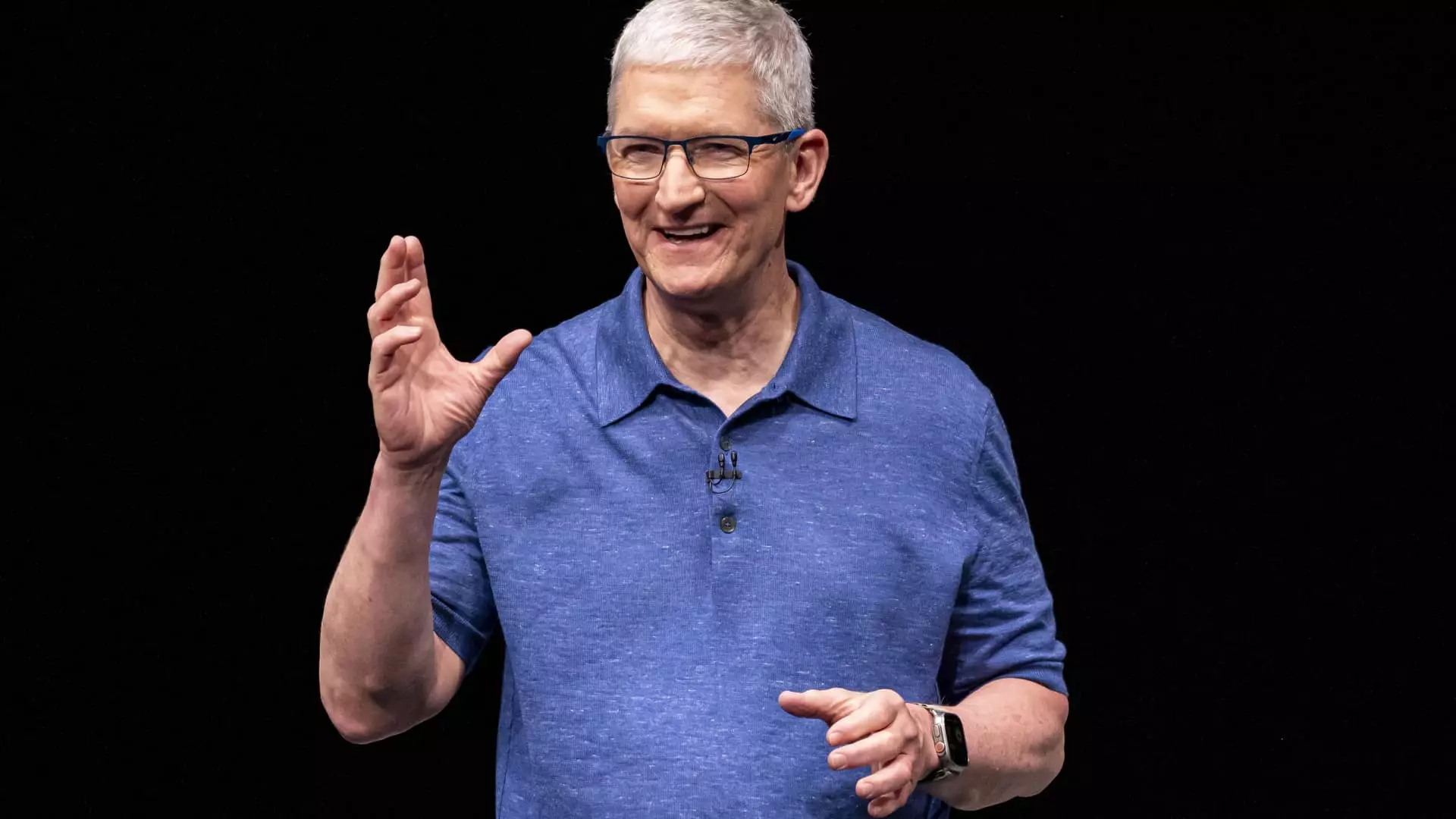Apple has once again taken the tech world by storm with the introduction of its new MacBook Pro laptops, debuting on Wednesday as potentially the final flagship hardware announcement for the calendar year. With the launch of the latest processors, Apple’s new lineup aims to elevate the user experience and pave the way for an AI-rich future.
At the heart of the new MacBook Pro models lies the groundbreaking M4 chipset, a component touted to be significantly more efficient than its predecessor, the M1. Apple asserts that the M4, alongside its more powerful counterparts—the M4 Pro and M4 Max—will deliver performance improvements up to 1.8 times greater than the M1 chip utilized in the 2021 models. This leap in processing power signals Apple’s continual push towards optimizing performance while maintaining energy efficiency, an essential aspect as customers demand more from their devices.
Moreover, the integration of advanced silicon technology has become a hallmark of Apple’s strategy, making its offerings distinctly competitive in the PC market. This progression reflects the company’s commitment to enhancing not just speed but overall user experience, demonstrating that usability and high performance can coexist symbiotically.
One of the most noteworthy developments accompanying these new MacBook models is Apple’s strategic focus on artificial intelligence (AI). The company has made a vital shift across its entire product lineup in anticipation of future AI capabilities, propelled by the launch of “Apple Intelligence.” This initiative promises groundbreaking features ranging from text generation to image creation and even emoji production.
All new MacBook Pro models come standard with a minimum of 16GB of RAM, signifying a significant evolution in Apple’s approach to RAM distribution. Previously, lower-tier Mac models were limited to 8GB, but the transition to increased RAM will better equip devices to handle complex AI tasks. This development not only enhances performance but also ensures that the devices remain relevant amidst the growing demand for sophisticated machine learning applications.
Apple is not stopping with the MacBook Pro. The MacBook Air and iMac are also ushering in updates that increase the baseline RAM to 16GB, preserving their pricing while enhancing their capacity. The decision to fortify the RAM specification across various models underlines Apple’s goal to create a cohesive understanding of what modern computing demands, particularly in an era dominated by AI.
Such uniformity also reflects Apple’s broader vision for seamless ecosystem interaction, enabling users to experience the power of AI in different formats across all their devices. This holistic approach is a significant step forward in Apple’s ongoing mission to fuse hardware and software harmoniously.
The 2021 re-launch of the MacBook Pro was celebrated for its design enhancements that welcomed back many traditional ports, such as HDMI connections, diverging from earlier minimalist designs. With the current iteration, Apple not only continues to evolve its hardware but also offers refined aspects such as an upgraded 12-megapixel camera, catering to the burgeoning demand for quality videoconferencing in remote work capacities.
As the world continues to adapt to hybrid work environments, these advancements demonstrate Apple’s adaptability and responsiveness to consumer needs, making connectivity a central theme in their updated devices.
Despite the Mac’s relatively minor contribution compared to the iPhone and other wearable technologies, it remains a crucial component of Apple’s ecosystem, as it acts as the backbone for app development among other functions. In the most recent quarter, Apple reported $7 billion in Mac sales, a modest uptick demonstrating stability as the company prepares for another quarter’s results.
With starting prices set at $1,599 for the 14-inch model and $2,499 for the 16-inch variant, the new benchmarks have placed Apple in a strong position while continuing to emphasize quality and performance. Furthermore, the promise of up to 24 hours of battery life on specific models positions Apple’s latest offerings as formidable contenders in the marketplace.
As these new MacBook Pro laptops hit store shelves on November 8, Apple is once again poised to captivate both new and loyal customers, presenting devices that not only enhance productivity but also embrace the transformative potential of AI in everyday computing.

Leave a Reply